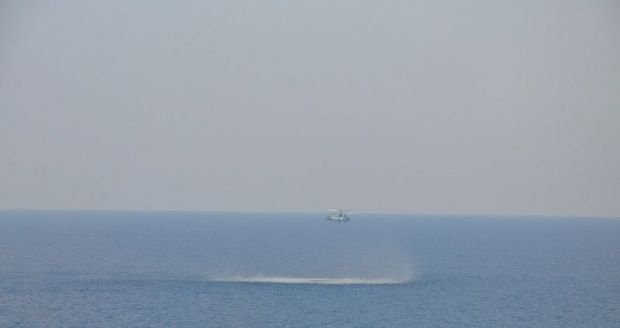
NATO is looking to counter Russia's military build-up in Crimea, which Moscow annexed from Ukraine in 2014, and in the Black Sea, which is strategically important for both East and West given its energy reserves and closeness to the Middle East, Reuters wrote.
"There are some very valuable discussions under way among the allies who live on the Black Sea ... of more closely integrating their naval forces and operations," NATO's Deputy Secretary General Alexander Vershbow said in a visit to Sofia, mentioning the three NATO allies by name.
The U.S.-led alliance is concerned by what it sees as a Russian strategy to try to block NATO from moving about by air, land and sea by positioning surface-to-air missile batteries and anti-ship missiles in Kaliningrad, the Black Sea and in Syria.
Read alsoPoroshenko: Ukraine happy to join 'allied fleet' in Black Sea if createdNATO already patrols the Black Sea, but Vershbow said that by the time Western leaders meet for a NATO summit in July, allies could have "an enhanced presence" in the area as part of plans to move troops on rotation into the Baltics and Poland.
"We need to consider a more persistent NATO military presence in the region, with a particular focus on our maritime capabilities," he said.
Backed by a big increase in U.S. military spending, NATO is setting up small eastern outposts, forces on rotation, regular war games and warehoused equipment ready for a rapid response force to deter Russia. That force includes air, maritime and special operations units of up to 40,000 personnel.
Worried since the seizure of Crimea and pro-Russian rebel operations in eastern Ukraine that Moscow could exert pressure on Poland or destabilize the Baltic states - perhaps by fomenting unrest in their Russian minority populations - the West wants to bolster defenses on its eastern flank without provoking the Kremlin by stationing large forces permanently.
NATO says it respects a 1997 agreement with Moscow to avoid deploying substantial combat forces on Russia's borders.
However, the Kremlin's envoy to NATO sees the alliance's plans as a threat to its security and has warned there will be no improvement in the worst East-West tensions since the Cold War until NATO withdraws its forces.

